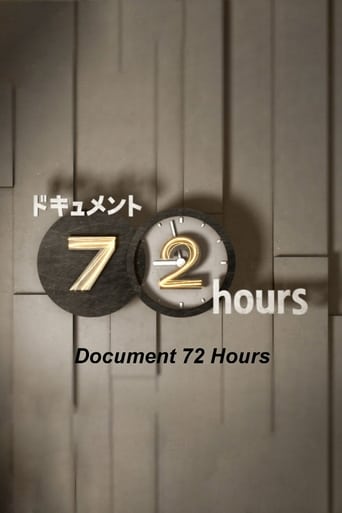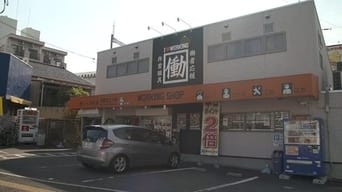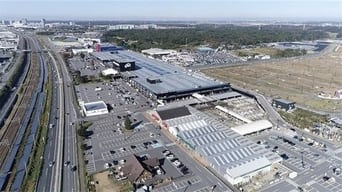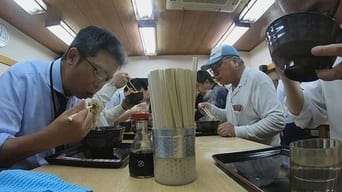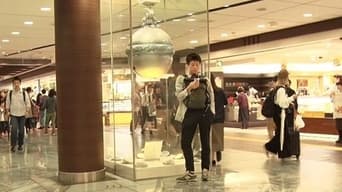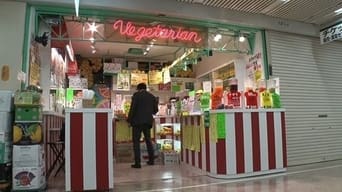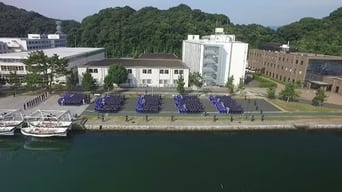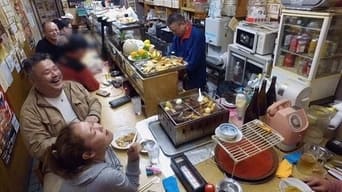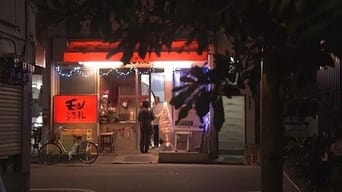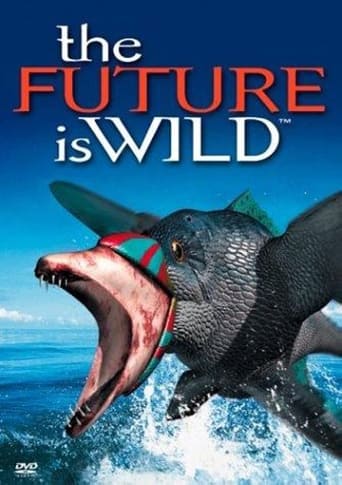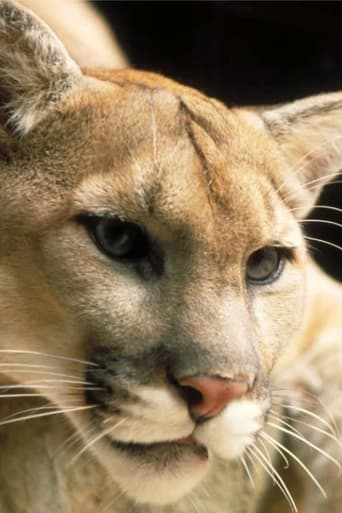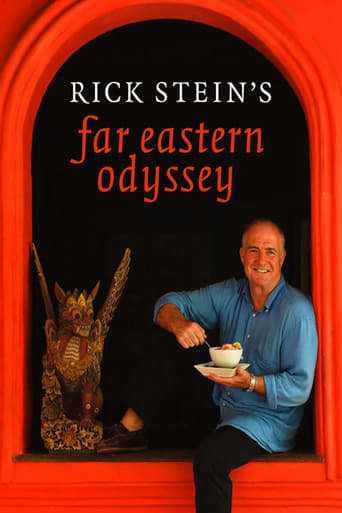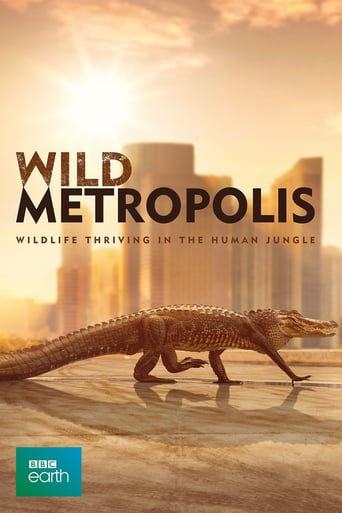Document 72 Hours Season 9
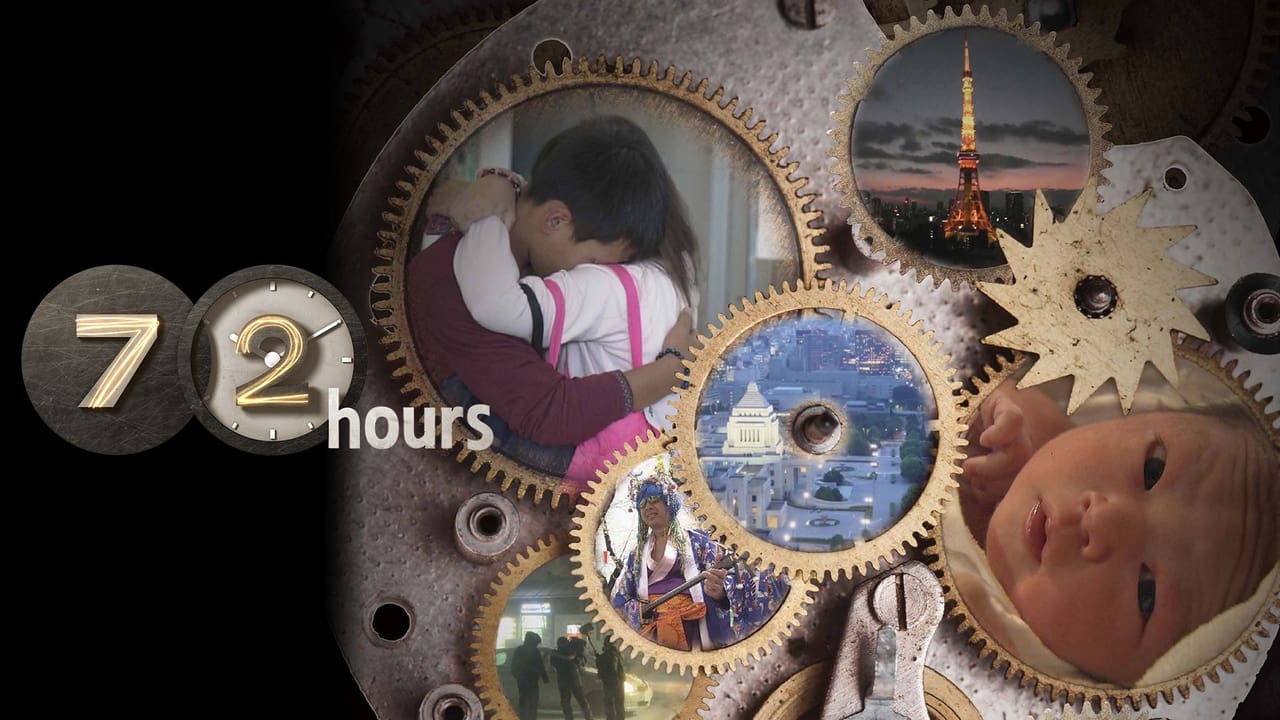
An unusual documentary series that delves into human dramas through chance encounters with ordinary people at selected spots. Filmed over 72 hours in a single location, the show captures glimpses into people's lives as they open up and share their stories. Japanese Broadcast Version
Watch NowWith 30 Day Free Trial!
Document 72 Hours
2006
An unusual documentary series that delves into human dramas through chance encounters with ordinary people at selected spots. Filmed over 72 hours in a single location, the show captures glimpses into people's lives as they open up and share their stories. Japanese Broadcast Version
Watch Trailer
Document 72 Hours Season 9 Full Episode Guide
Our stage this time is one of the largest home centers in Japan, located in a suburb east of Tokyo. From daily necessities to building and gardening materials, every product imaginable can be found here. A couple with a shared love of DIY (Do It Yourself) pick out lumber to rebuild a fence destroyed in a typhoon. Meanwhile, a woman working in rehabilitation looks for materials to make a device to help a patient. We listen to the stories of these people as they attempt to improve their lives through DIY.
In a quiet mountain town in Kumamoto Prefecture, there's a flight of 3,333 stone steps. Measuring 2.1 kilometers, it's the longest in Japan and takes the average adult about 90 minutes to climb. The steps attract people who want to put themselves through a strenuous challenge for various reasons. One group of university students makes the climb knowing they will go their separate ways after graduation. An elderly beautician takes on the steps with apprentices who are like sons to him. Some visitors go up and down several times a day. With anguished looks and trembling legs, they test their limits. We spent 3 days meeting people going up and down the 3,333 steps.
Each day, more than 1.8 million people pass through Tokyo Station. For 50 years, the Gin-no-suzu (silver bell) waiting area inside the station has been a popular landmark and a favorite spot to meet up with others. Countless reunions and farewells take place under this huge bell that adorns the center of the waiting area. The people waiting there include a group of elderly men who meet there on each other's birthdays before heading off to celebrate, and far-flung fans of a pop band who met online and are going to a concert together. But for some, finding Gin-no-suzu inside the sprawling station is not so easy and rendezvous plans do not work out as expected. For 3 days, we talked to the people waiting at this iconic spot -- and to the people they were meeting.
About 5 million people visit Hakodate in Hokkaido Prefecture, but in recent years this picturesque northern city has become known for another down-to-earth attraction: a hamburger restaurant that offers huge servings. Its unique hamburgers include fillings such as deep-fried chicken and crumbed pork cutlets. Many customers who come for a hearty lunch get so full that they do not need to eat dinner. Although Hakodate often tops surveys of attractive places to visit, the city also suffers from a falling population and high unemployment rate. For 3 days, we asked customers at this restaurant that has been loved by locals for decades about what they define as happiness.
Our stage this time is a remittance office in Okubo, Tokyo, where 40% of the population is international. Foreign workers visit this office in an endless stream, where money can be sent to 150 different countries for a fee of about 1,000 yen. An Indonesian woman sends tuition money for her sister's children, while a man from Africa transfers money to fly his son in to live with him. We listen to customers' stories as they send money, and love, to the people they hold dear.
Shimbashi, Tokyo, where office workers thrive. When they need refreshment, they head to a local, long-running juice stand. Ingredients range from peach and watermelon, to turmeric and aloe. Over 150 customers come each day, seeking colorful juice made with seasonal fruits and vegetables. A businessman rushes in before a negotiation, a woman in her 30's comes by to care hungover. Another man, in his 70's, has been a regular customer since before he retired. We spend 3 days in this oasis, listening to the thoughts of people who come here for a break.
It is 780 meters long, dead straight and has few distinguishing features, but the undersea pedestrian tunnel running 60 meters underneath the Kanmon Straits in southwestern Japan attracts a steady stream of visitors. Many people use the tunnel to travel between Fukuoka Pref. and Yamaguchi Pref., but others have different purposes in mind. The visitors are diverse: from a woman in her 20's who brought her boyfriend to the tunnel that is filled with childhood memories, a man who comes to secretly train for a marathon, to a woman who walks there every week with old friends no matter how busy she is. What draws them to this nondescript tunnel that remains unchanged, day after day? We spend 3 days looking at who walks through this underground passage.
In a corner of a major industrial zone on Tokyo Bay sits a park from which people can fish at any time of the day or night. More than 20 kinds of fish, including horse mackerel and sea bass, can be caught from the waterfront park, which attracts fishing fans around the clock. Among the people who come to drop a line in the water are a shipyard worker from the Philippines, a freelance illustrator hoping to catch a big fish with her brand-new fishing rod, and a young man who has worked in construction since he was a teenager to support his family and dreams of becoming a photographer. For 3 days in July, as Tokyo sweltered in record-breaking heat, we asked the people at this park about why they went fishing there.
We cover an old hospital, built in the year of the 1964 Tokyo Olympics, as it moves to a new building. The new hospital is only 250 meters away, but to ensure treatment is uninterrupted, all patients must be moved in a single day. What's more, the movement of beds and medical machines must also follow a tight schedule, transferred to the new building one truckload at a time. In preparation for this day, the doctors and nurses started holding meetings over 6 months before. Just how will this massive project turn out?
The Japanese Derby is an annual race that draws over 100,000 spectators. Many fans start lining up near the entrances to Tokyo Racecourse several days – the first ones more than a week – before the race, which lasts just two and a half minutes. Among those lining up are a man for whom the racetrack brings back happy memories of his late wife, and a man who recently quit his job due to office politics. As the clock ticks down to the race, a special sense of unity develops among those waiting in line. What do they think about, and how do they spend their time, during the tremendously long wait?
Sales at department stores have been sluggish in recent years, but the stores' cosmetics sections are providing a ray of light with their robust growth. In 2017, sales at these sections jumped 17% from the previous year and topped 500 billion yen. Each day, about 2,000 customers buy their preferred makeup products at one long-established department store in Nagoya offering an array of famous brands. These customers include an 88-year-old company executive who never goes without makeup, a young woman setting on a new path in life by changing her job and her makeup, and an art dealer who considers cosmetics to be a vital part of her "combat uniform" worn during business battles. How do women want to present themselves and to be seen? For 3 days, we watched the customers quietly – but excitedly – finding their ideal makeup.
For a few days in spring, the normally quiet fishing town of Toyama Prefecture becomes festive as people gather from throughout the country. Their goal: to await the firefly squid. Around the new moon, when conditions are right, the squid will inundate the coast in massive numbers, covering the nighttime shore in their dazzling pale blue light. With baskets and nets in hand, young and old alike wait in the darkness with determination. Will they see the miraculous sight of the squid? We spend 3 spring days with them, waiting for the arrival of the squid.
For 3 days, we follow a library truck stocked with 2,800 books. In Matsuyama City, a public truck service has been delivering books to the surrounding mountains and islands for 45 years. Many locals use this service, including a retired couple looking for new hobbies, elderly islanders full of curiosity to keep learning, and a pair of friends reunited by the truck who now meet there regularly. We explore how books have touched the lives of the people who gather at the library truck.
Route 45, a national highway that snakes along the Pacific coast of the Tohoku region, is a vital link between areas devastated by the March 2011 earthquake and tsunami. Starting on the disaster's 7th anniversary, we travel from south to north to meet people living near this road. Over 3 days, we talk to people including an elderly woman taking a break near the spot where her house once stood, and a researcher who moved from Tokyo to study Tohoku's natural environment. Reconstruction is progressing well in some areas, but not so in others. As signs of the long-awaited spring appear, what thoughts are on the minds of residents here?
Located near Narita International Airport, Sakuranoyama Park offers visitors close-up views of planes arriving at and taking off from this major gateway to Japan. At times, several hundred people visit the park each day to catch awe-inspiring glimpses of huge aircraft flying overhead. Among the visitors were avid photographers, an elderly man who has never been on a plane, and a man fondly recalling the days when he flew all over the country on business trips. People at the park superimpose their own lives and dreams on the planes flying to distant corners of the world. For 3 days in early spring, a season for new beginnings, we listened to the stories of park visitors gazing at the planes up in the sky.
It's midwinter at Tsugaru Strait, where a huge ferry connects the 120 kilometers between Aomori Prefecture and Hakodate, Hokkaido. With showers, a game center and even suite rooms with beds, the spacious ferry can carry 600 passengers. At the end of each year, crowds of people head back to their hometowns on this boat. From a father living away from his family for work, to a couple excited about their new life together, everyone has a different reason for crossing the strait. We spend 3 days traveling between Aomori and Hakodate, and take a look at the stories of the people we meet.
In a residential area in Koto Ward, Tokyo, is a bakery open 24 hours a day. Their Danish Bread, rich with butter and fresh cream, sells over 1,000 loaves each day. Many people come to buy this bread not only for themselves, but as gifts for others as well. From people sending it as a casual present to friends and family, to businessmen buying it as a thank-you gift, we spend 3 days looking at who buys this sweet, delicious bread.
Free Trial Channels
Seasons


